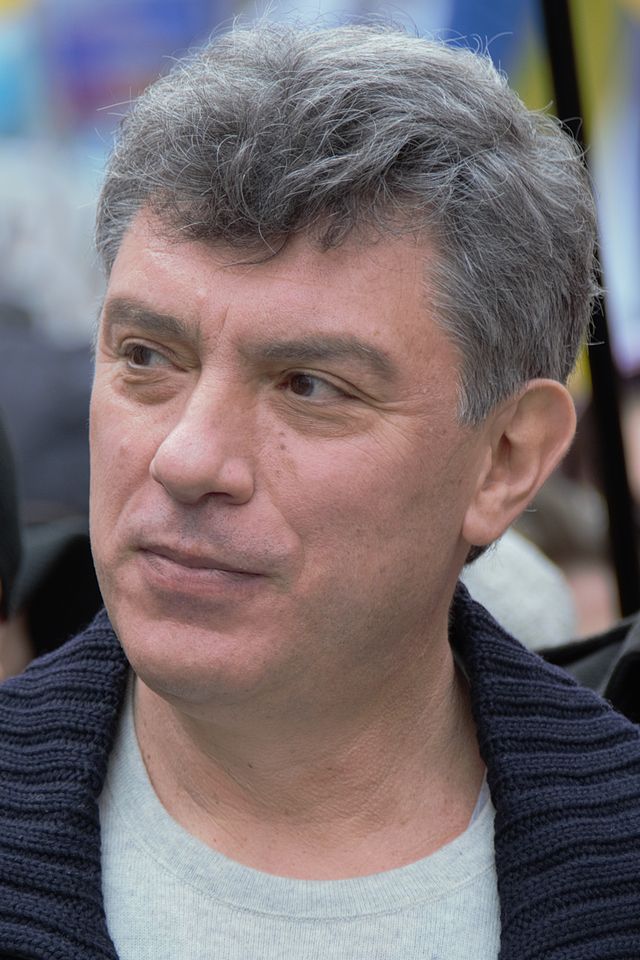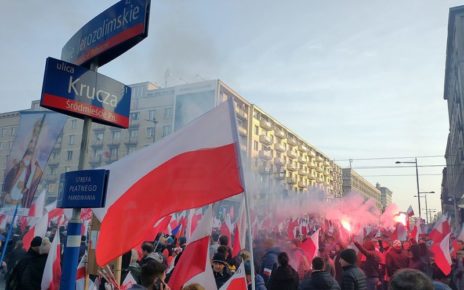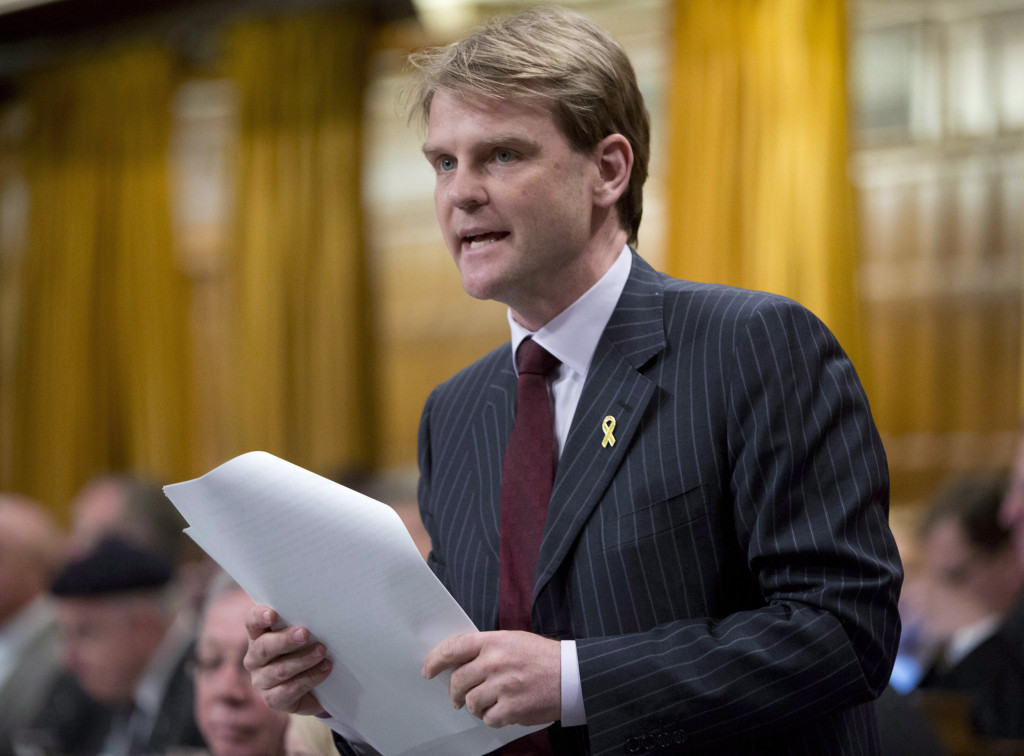Putin’s only true political rival, Boris Nemtsov, was assassinated on February 27, 2015, just steps away from the Kremlin. Nemtsov’s assassination signals a new step in Putin’s Russia, in its further entrenchment of authoritarian values. Boris Nemtsov, an elected official under the Yeltsin government, had been a fixture in the Kremlin since the mid 1990s, and was the official opposition leader for almost a decade. He was an outspoken critic of Putin’s foreign and domestic policies, and his death highlights a growing trend under Putin: the killing of high profile journalists, dissidents and politicians. Combined with tightened controls on media freedom, and the suppression of civil liberties, Putin’s expansionist foreign policy mirrors his domestic policy, as discussed in Part One.

Roskomnadzor, the Russian equivalent to America’s FCC and Canada’s CRTC, was re-established under the Putin government in 2008, since its disbanding in 1991 following the collapse of the Soviet Union. Roskomnadzor has been charged with controlling and supervising all digital, print, and televised media, and administering all blocked websites in Russia. In February 2014, Putin authorized new laws which gave Roskomnadzor increased powers to ban or block any media which it deemed unfit for public consumption, without having to obtain a prior court order. Opposition news websites such as Ezhednevny Zhurnal, Grani, and Kasparov have also been banned. Nina Ognianova, the Program Coordinator for the Committee to Protect Journalists, released a statement online saying “Russian authorities are unabashedly cleansing the media landscape of independent voices that have the power to shape minds.”
Further entrenching his authority, Putin has also targeted anti-corruption activists, including Aleksei Navalny, who had his LiveJournal-based blog blocked by Roskomnadzor in 2014. However, state-directed actions carried out against all opposition media are nothing new. Mikhail Beketov, the publisher of the Russian independent newspaper Khimkinskaya Pravda, was beaten to death after publishing reports of corruption in the Kremlin in 2012. Oleg Kashin, a reporter for the business paper Kommersant, was also savagely beaten in 2010 for his exposure of government corruption at the regional and federal levels.
“Russian authorities are unabashedly cleansing the media landscape of independent voices that have the power to shape minds.”-Nina Ognianova
The Kremlin still maintains that the rebels of the People’s Republic of Donetsk are locals fighting for independence. However, the worst kept secret of the Ukraine crisis is that Russian soldiers are in fact made to ‘volunteer’ as contracted soldiers for the rebel forces, and once their mission is done, they are immediately sent back to Russia. However, many ‘former’ Russian soldiers have not returned home, or are returning wounded, which has provoked the ire of Dmitri Pyslar of the Association of Russian Soldiers’ Mothers. Pyslar wants answers for the ‘mysterious’ deaths of Russian soldiers, many of whom are buried in secret without their families’ knowledge. Psylar confirmed through his sources that Russian soldiers were part of the attack on Debaltseve, however due to state secrecy, he was unable to reveal the number of Russian soldiers that had fought in the battle.
The Putin government has also been known to suppress political opposition politicians and journalists currently attempting to locate the as-of-yet unaccounted-for Russian soldiers said to be fighting in the Crimea. Boris Nemtsov was among them before his death. Opposition-controlled Internet sites and posts, which have condemned Russia for the Ukraine conflict, have also been banned. Popular liberal radio station Ekho Moskvy was also given an official warning in October 2014 by Roskomnadzor for its airing of eyewitness accounts of Russian forces in the Ukraine, whose presence Putin has vehemently denied.
The ‘mysterious deaths’ of Russian soldiers has become a risky topic in Russia, as the Putin government continues to deny any involvement in Eastern Ukraine. At the same time, members of BBC’s Moscow’s bureau and journalists from independant paper Pskovskaya Guberniya were assaulted by non uniformed men thought to be members of Russian forces. Lev Shlosberg, the Publisher of Pskovskaya Guberniya, was also targeted in an attack due to his report on the over 100 ‘unknown’ deaths in the 76th Paratrooper Division of the Russian army. Russian officials denied the attack, despite overwhelming evidence that the Division had been deployed in Eastern Ukraine.

At the time of Nemtsov’s death, he was preparing a report on Moscow’s secret backing of rebel forces in Eastern Ukraine. Nemtsov, known for his opposition to Putin’s regime, issued eight previous reports which highlighted corruption and misrule. His most recent report was on the alleged corruption behind the 2014 Sochi Olympics and Putin’s role therein. During that time, Nemtsov received almost zero air time on state TV or radio due to Putin’s control over the media. Regardless of this, Nemtsov led the small but active People’s Freedom Party until his assassination.
Nemtsov’s report would not have been well received in Russia, and due to state controls over media, would not have had a very far reach. However, if an official opposition report were to be picked up by Western media, it would have caused a harsh backlash against Putin by Western states. Nemtsov was very cautious regarding this report, even resorting to writing on scraps of paper and passing notes, as he was certain that his office and home were bugged. He even revealed to independent news outlet Sobesednik a conversation that he had with his mother in which he expressed his fears that Putin might have him killed due to the report. The report itself, which is reportedly to be released by his colleagues in April, confirmed the involvement of paratroopers from Ivanovo, as well as the death of 17 paratroopers in Eastern Ukraine.

Nemtsov’s murder was conveniently blamed on Chechen extremists, led by Zaur Dadaev, who had confessed to the murder. He later retracted his confession, stating he was tortured and had given his confession under duress. Dadaev’s original ‘confession’ stated that he had killed Nemtsov due to the latter’s alleged insults against Mohammed. While the Kremlin continues to promote the “Dadaev” narrative, the reality is that Nemtsov, like many before him, was likely murdered by an autocratic leader to cover up another instance of abuse of power. Worried about the exposure of his actions in Eastern Ukraine, Putin had Nemtsov killed, to silence the highest profile opposition leader under his regime. This murder, just like Russian expansion into former Soviet states and into the Arctic, signals a change in Putin’s methodologies. He continues to consolidate power, and the murder of Nemtsov is but another step towards that objective.




